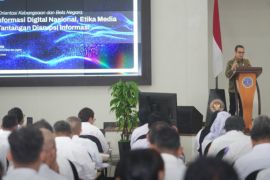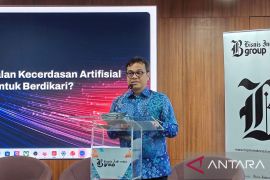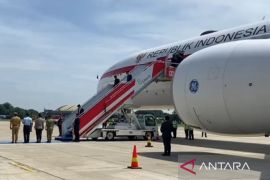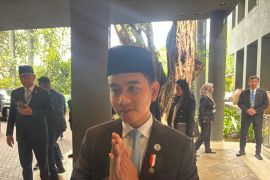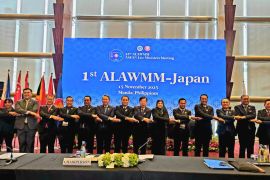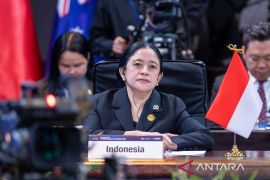The guideline aims to ensure the ethical and transparent use of AI technology while upholding journalistic integrity amid rapid technological advancements.
Press Council Chairperson Ninik Rahayu explained that the drafting process for the guideline began in April 2024.
The council formed a task force comprising internal members, representatives from media outlets, and a drafting team to develop the guideline.
"All members of the press have anticipated this guideline. We hope that it will help accelerate journalistic processes and improve work efficiency," Rahayu stated.
She remarked that during the preparation process, feedback was collected from media organizations already using AI in their reporting, as well as from experts in the field.
Additionally, the guideline underwent a public testing phase that included input from stakeholders, such as the Supreme Court.
"However, it is crucial to maintain strict control and ethical standards to ensure AI does not undermine fundamental journalistic values like accuracy, fairness, and independence," Rahayu noted.
The guideline consists of eight chapters and ten articles covering various aspects, including general provisions, basic principles, technology, publication, commercialization, protection, dispute resolution, and conclusion.
One article in the guideline specifies that the use of AI in creating journalistic work must be supervised by humans.
Earlier, the Indonesian Alliance of Independent Journalists (AJI) emphasized that AI cannot replace journalistic work but can only serve as a supporting tool.
"AI technology is meant to assist our work. It does not serve as the foundation of journalism," AJI Indonesia Chairperson Nany Afrida stated.
Related news: Ministry plans to seek input from public on AI regulation
Related news: Indonesia to draft AI regulation within three months
Translator: Bagus R, Kenzu
Editor: Anton Santoso
Copyright © ANTARA 2025

